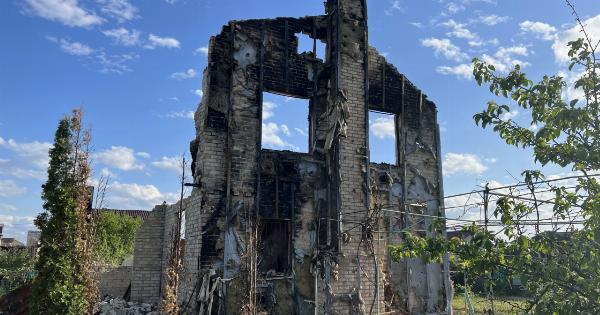Housing insurance is a type of insurance that compensates property owners in case of any loss or damage to their homes.
It’s essential to have proper insurance coverage to protect your property from unforeseen circumstances, such as theft or natural disasters. However, the amount of compensation you receive from your insurance company depends on various factors, including the type of policy you have, the value of your property, and the cause of damage or loss.
In this article, we’ll explain how housing insurance determines compensation.
Type of Policy
One of the most important factors that determine the compensation amount is the type of policy you have. There are two types of housing insurance policies: Actual Cash Value (ACV) and Replacement Cost Value (RCV).
ACV policies compensate property owners for the depreciated value of their property, while RCV policies cover the entire replacement cost of the property. For example, if you have an ACV policy, and your property gets damaged, the insurance company will consider the depreciated value of the property while determining the compensation amount.
On the other hand, if you have an RCV policy, the insurance company will pay for the entire replacement cost of the property. It’s essential to read your policy carefully to understand the type of policy you have.
Extent of Damage
The extent of damage or loss is another critical factor that determines the compensation amount. If the damage is minimal, the insurance company will pay for the repair costs.
However, if the damage is severe and beyond repair, the insurance company will pay for the replacement cost. For example, if a fire breaks out in your kitchen, and the cabinets get damaged, the insurance company will pay for the repair costs.
But if the fire spreads to the entire kitchen and causes severe damage, the insurance company will pay for the replacement cost.
Cause of Damage or Loss
The cause of damage or loss is another essential factor that determines the compensation amount. If the damage is caused by natural disasters such as earthquakes, floods, or hurricanes, the insurance company will pay for the damage as per the policy.
However, if the damage is caused by the negligence of the property owner, such as not taking proper precautions to protect the property, the insurance company may not compensate for the loss. For example, if the property owner doesn’t take the necessary steps to prevent water damage, and the property gets damaged due to water leakage, the insurance company may not compensate for the loss.
Exclusions and Deductibles
Insurance policies come with certain exclusions and deductibles, which can impact the compensation amount.
Exclusions are events that are not covered under the policy, such as damages caused by war, nuclear incidents, or intentional acts of the policyholder. Deductibles are a specific amount that the policyholder needs to pay before the insurance company starts paying for the damages.
Higher deductibles result in lower premiums, but it also means that the policyholder needs to pay more out-of-pocket before the insurance company starts paying for the damage.
Coverage Limit
The coverage limit refers to the maximum amount of compensation that the insurance company will pay, regardless of the damage caused.
It’s essential to choose the coverage limit carefully based on the value of your property and the potential risk factors. If the damage exceeds the coverage limit, the policyholder needs to bear the remaining costs.
Adjuster’s Assessment
When a property owner files an insurance claim, the insurance company sends an adjuster to assess the damage and determine the compensation amount.
The adjuster carefully inspects the property, evaluates the extent of damage or loss, and estimates the repair or replacement cost. Based on the adjuster’s assessment, the insurance company determines the compensation amount. It’s essential to provide accurate information to the adjuster during the property inspection to avoid any discrepancies later on.
Additional Living Expenses
Additional living expenses are costs that the policyholder incurs, such as temporary accommodation or food, due to the damage or loss of the property.
Most housing insurance policies cover additional living expenses, but the compensation amount may vary based on the policy’s terms and conditions.
Conclusion
In conclusion, housing insurance determines compensation based on various factors such as the type of policy, extent of damage, cause of damage or loss, exclusions and deductibles, coverage limit, adjuster’s assessment, and additional living expenses. It’s essential to read your policy carefully and understand the terms and conditions to make an informed decision.
Also, it’s recommended to take necessary precautions to protect your property from potential risks and reduce the likelihood of damage or loss.



















